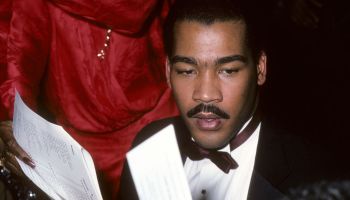What characterizes “The Decade from Hell,” as Time magazine recently called it? Well, terrorism and the fear of random, irrational terrorist attacks; war and rumors of war, most certainly; the consciousness of economic and environmental vulnerability, in a combination experienced to such a degree by no previous generation of our countrymen; the transformation of the world into a hive in which its citizens can communicate nearly simultaneously.
But beyond that? Ours is a world in which borders, boundaries and fronts have become as mobile as everything else. A five-century Westphalian world order of fixed ethno-territorial boundaries, a set of norms and expectations set in motion by Europeans in a treaty signed in 1648, has come to a close. Culture and conflict flow in constantly shifting transnational configurations. We get conflicts, such as the ones in Iraq, Afghanistan and Pakistan, where Western military might finds no fronts to control, no armies to engage. Meanwhile, global jihad turns out to incubate as easily in Hamburg as in Waziristan.
Apostles of the new economy spent the decade chirruping about the advantages of virtuality. When music, movies and news move online, they’re removed from the fixities of time and space. Once, the evening news played on the box in your living room at 7 p.m.; now it plays all day long on the smart phone in your pocket. Social networking sites and platforms—Facebook, MySpace, Twitter—make it easy to maintain and build communities, irrespective of location. In the arena of electoral politics, “netroots” groups such asMoveOn.org have shown their clout. Great stuff.
But, of course, there’s another side to the new architecture of community and information. When American evangelists go global and multimedia, they import their culture wars to places like Uganda, where the parliament is considering a bill that would make homosexuality a capital offense. Radical jihadism itself has become a downloadable form of community for the globally aggrieved, a teeming Loss-of-Facebook. The MobileMe of the Western consumer runs into the MobileThem of the violently disaffected, both nurtured by the same structures and processes. Technological advancement, as the past decade has reminded us, doesn’t necessarily servemoral advancement.
Here’s what I see as the 10 defining moments of the decade, events where boundaries were erased, changing our lives forever, for the better—and for the worse:
1. Dec. 12, 2000: A U.S. Supreme Court ruling, by a vote of 5 to 4, delivers Florida’s electoral vote to George W. Bush, argued to be the first judicial coup d’état in American history.
2. Sept. 11, 2001: 9/11. Followed later by jihadi attacks in London, Madrid and Mumbai.
3. Oct. 7, 2001: The United States’ invasion of Afghanistan; March 20, 2003: The United States’ invasion of Iraq.
4. 2003: The completion of the Human Genome Project.
5. February 2004: The creation of Facebook; February 2005: The creation of YouTube. The attendant rise of social platforms would be a hallmark of the decade.
6. Aug. 29, 2005: Hurricane Katrina.
7. June 29, 2007: Apple introduces the iPhone, solidifying the ascent of “tethered appliances,” such as the BlackBerry and the iPod, and the transmutation of content and communication as something digital and mobile.
8. Oct. 12, 2007: Former vice president Al Gore and the United Nations’ Intergovernmental Panel onClimate Change win the Nobel Peace Prize.
9. March 18, 2008: Sen. Barack Obama delivers the speech “A More Perfect Union” at National Constitution Center in Philadelphia, symbolically distancing himself from radical Black Nationalism, perhaps the single most important event in his election as the first African-American president of the United States.
10. Sept. 15, 2008: Lehman Brothers files for bankruptcy, initiating a chain of events leading to the Great Recession.
Henry Louis Gates, Jr












